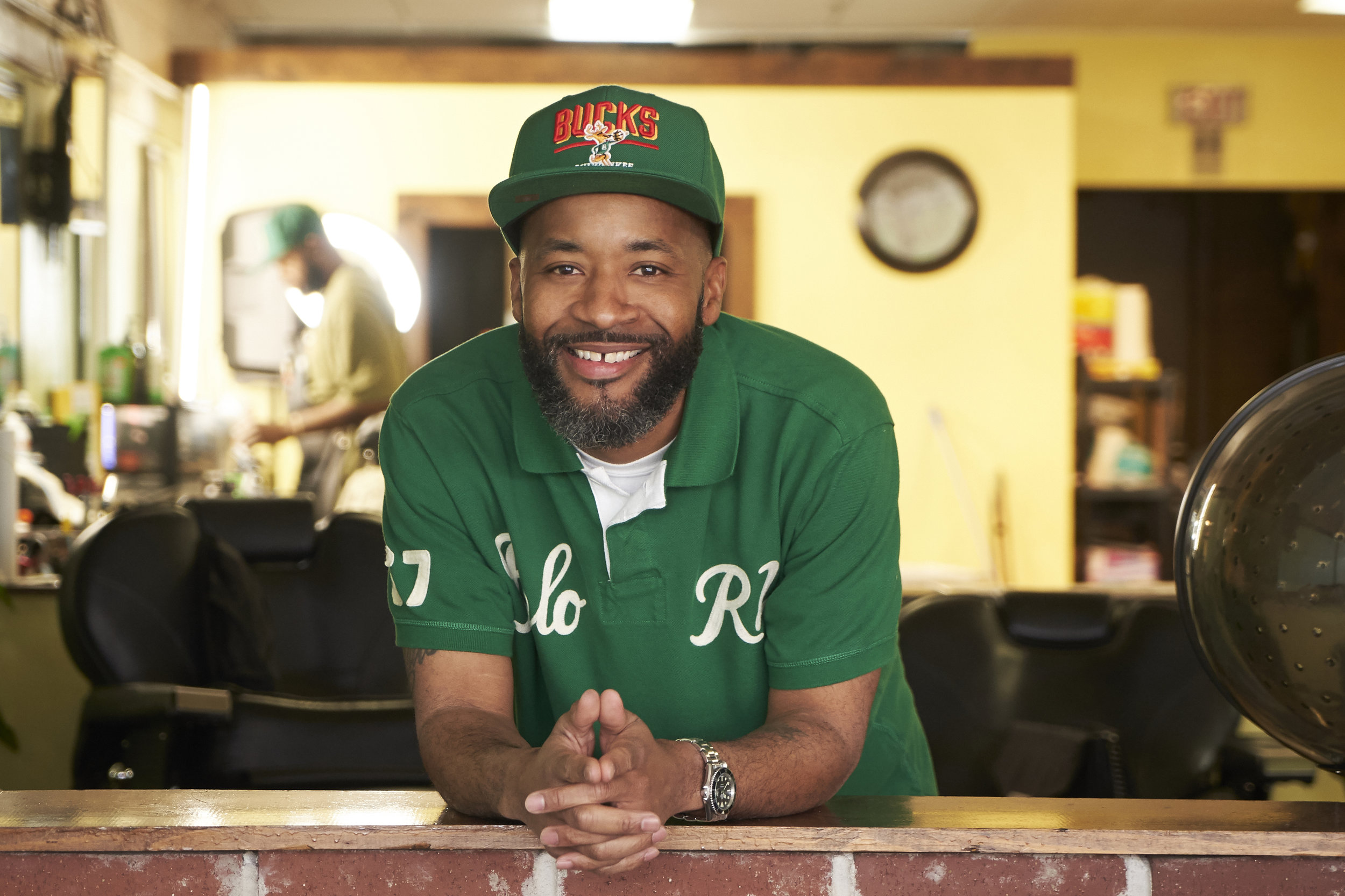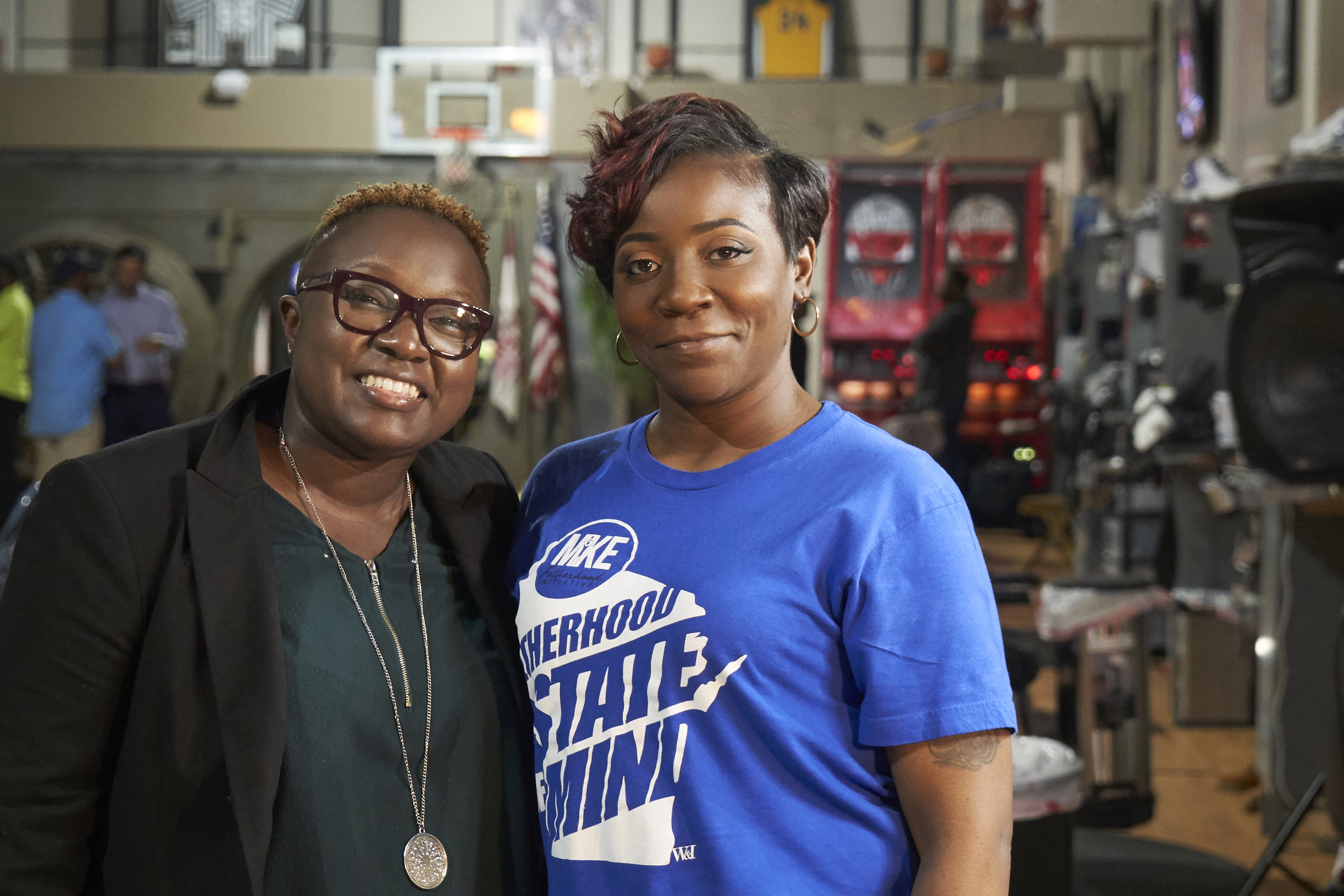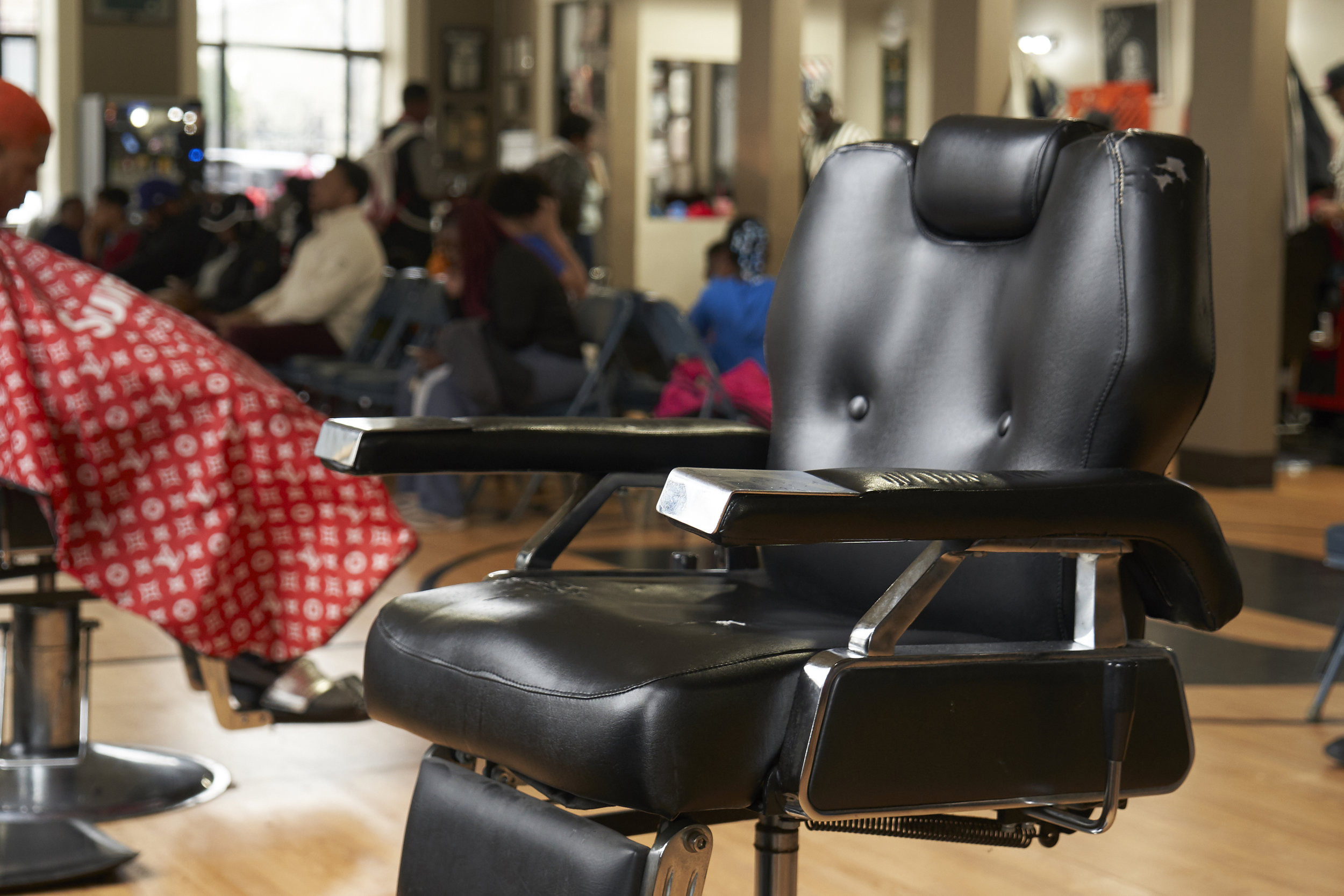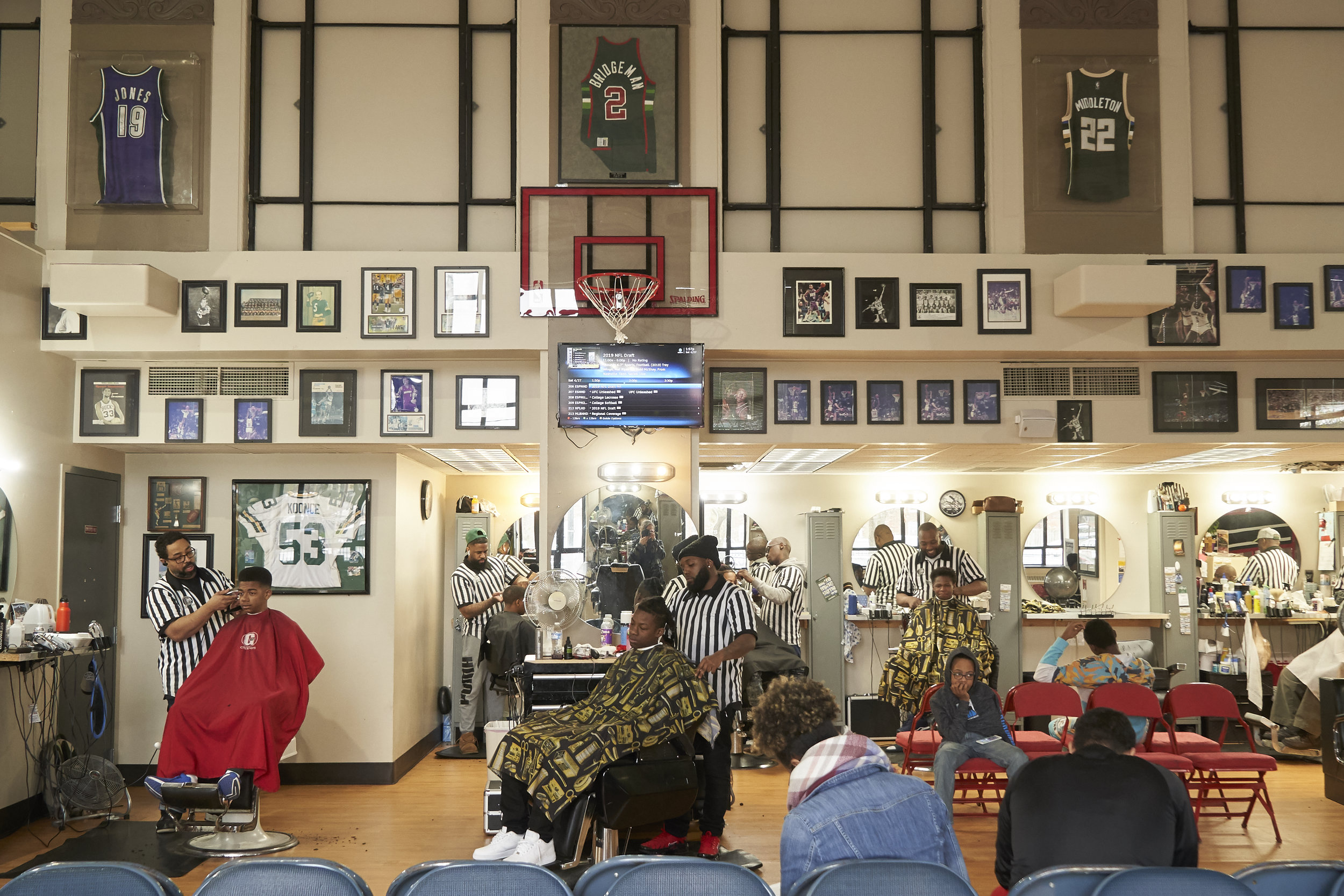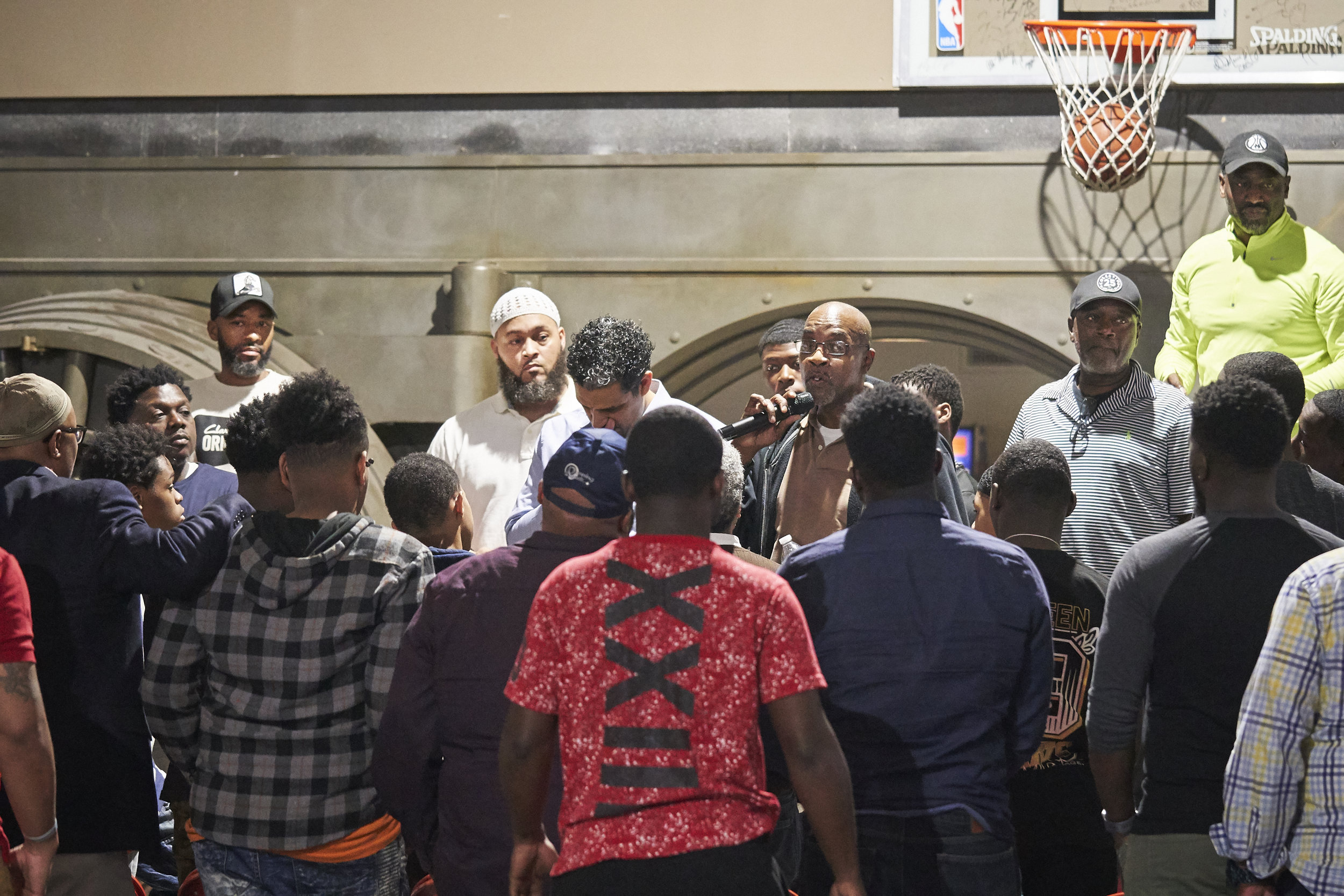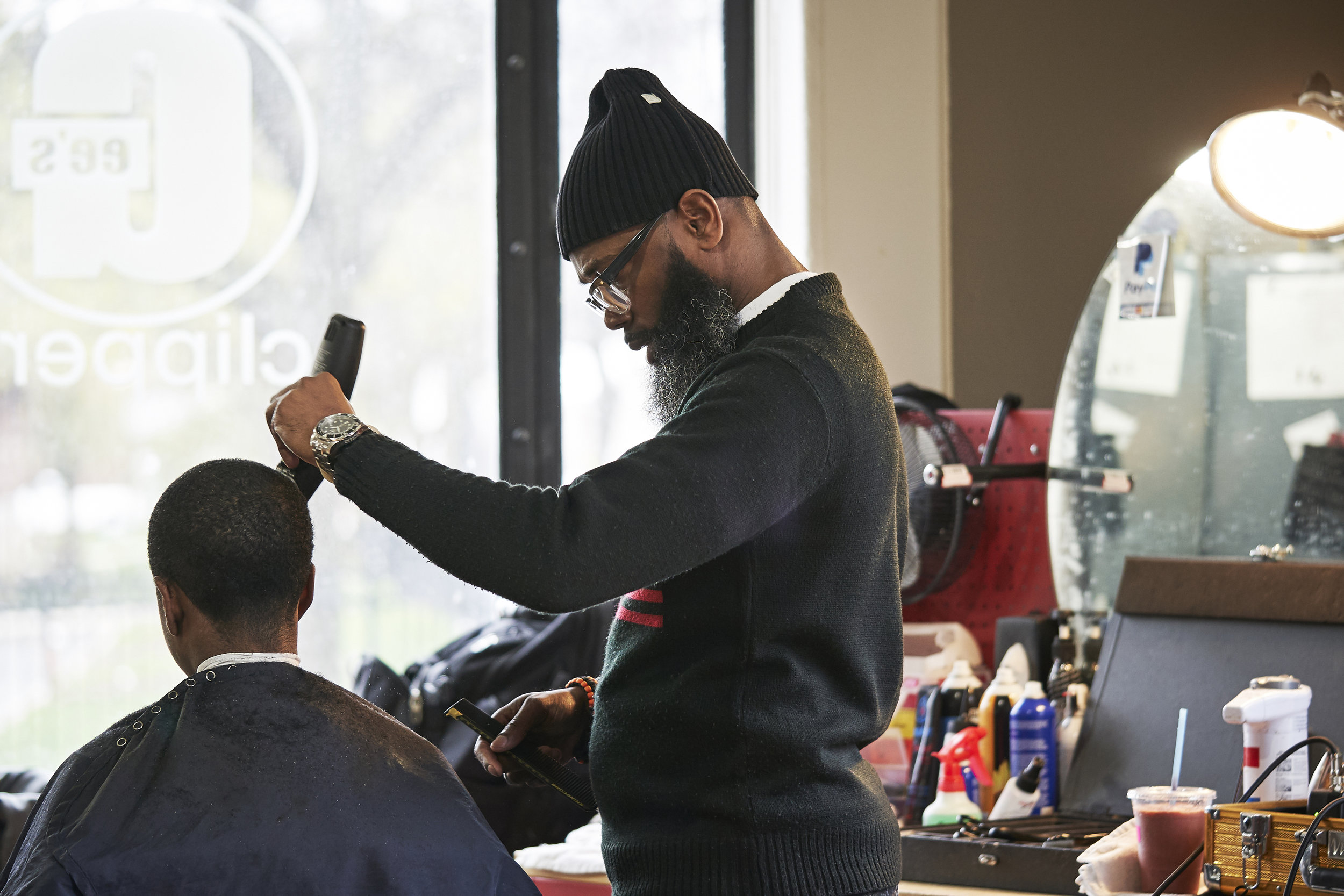On Saturday morning, in the busy barber shop on MLK Drive and Garfield Avenue, you will hear the sound of shears clipping, trimmers buzzing and men talking amongst each other. Gee’s Clippers always seems to be full of energy and people with hopeful faces. There is a welcoming atmosphere in the midst of the bustling barber shop.
On the other side of town, on 76th Street and Capitol Drive, you’ll find a quieter barber shop with a staff that seems like a family. Styles Par Excellence, managed by Dart Townsend, has a staff that supports one another and their clientele by being there to listen when someone needs to share their struggles. These barber shops, like others in the city, hold onto a culture that has been rooted in the African American community for decades. Barber shops have been a gathering place for black men, providing a safe space to talk and build self-esteem.
A barber is far more than someone that cuts hair; he is a role model, a health advocate and a reliable person to talk to. Especially to a man dealing with difficult life experiences like poverty or family problems, a barber is a steady person in his life who can empower him with a new haircut. As is commonly reported in the news, the rates of obesity, incarceration and poverty among African Americans are vastly higher compared to those of whites.
Most Milwaukee residents probably already know that our city is one of the most segregated cities in the country and home to the zip code with the highest percentage of black male incarceration. Those issues are real and present for too many local men, but barbers “can be an ear to those individuals that come from a broken home,” states Gaulien “Gee” Smith, owner of Gee’s Clippers. More than that, these barbers are embracing their role as trusted community members and partnering with organizations like the Milwaukee Fatherhood Initiative (MFI) to bring real solutions to this city.
One of those solutions is an event put on by Gee’s Clippers and MFI called “Real Men Real Talk,” a conversation for and about men. The idea came together when Gaulien Smith and MFI’s project director Natasha Dotson realized that men aren’t talking to each other about their personal issues. Dotson has witnessed how hypermasculinity can cause men to withdraw from their families and avoid confronting their problems. Smith has seen similar patterns in his customers and over time has seen more mothers bringing their sons to the shop, rather than fathers. Men have been withdrawing from the family because they don’t know how to act as fathers. But going to the barber is one of the key ways African American men have traditionally bonded with their sons, Dotson explains. “That’s what men did. It was a man thing.”
Real Men Real Talk is Dotson and Smith’s direct response to those problems. The recurring event is a workshop and open conversation which gives men the tools to be engaged with their families and steer their lives in a positive direction. Hosted in Gee’s barber shop, the gathering is only for men and pulls in leaders and business owners from around the city to teach men about entrepreneurship, health and confidence. The moderator of Real Men Real Talk, Kwabena Antoine Nixon, explains the conversation provides black men a place for healing, a place to discuss their concerns and a place to feel welcomed.
“Barber shops are the heartbeat of the community,” Smith insists. They are one of the few places many of these men feel comfortable talking about their vulnerabilities. Many men don’t know where to look for help so they choose to go to their barber, someone they trust, a place they can let their guard down. “You can say the things here you can’t say nowhere else,” says Anthony Millions, a barber at Gee’s Clippers. “You can talk to somebody, another man, about things you can’t talk to your girl about.” These conversations allow men to talk through their frustrations, find guidance and be more present when they go back to their families.
Gee’s Clippers allows for one-on-one conversations between barber and customer, but Styles Par Excellence tends to be a group conversation in their smaller space. “Everything is on the table when you’re in the shop. Everybody is welcome to chime in,” says Townsend. “It’s like a group therapy session, so to speak.” Whether it’s a conversation between two men or ten, these barbers make sure their shops are a place for men to have meaningful conversations whenever they are needed.
The essential thing that barber shops provide is trust. When boys and men sit in their barber’s chair to get a haircut, they are sitting in the chair of a man they confide in. “In this day and time, for the most part, a barber is the only positive male role model a kid might talk to on a regular basis. We don’t have enough positive African American men out here,” says Smith. He believes barbers have a responsibility to impart as much positive energy and insight as they possibly can. While inside a barber shop, a man gets to escape from the burdens of daily life and be in a sanctuary that guides him to become a stronger man.
